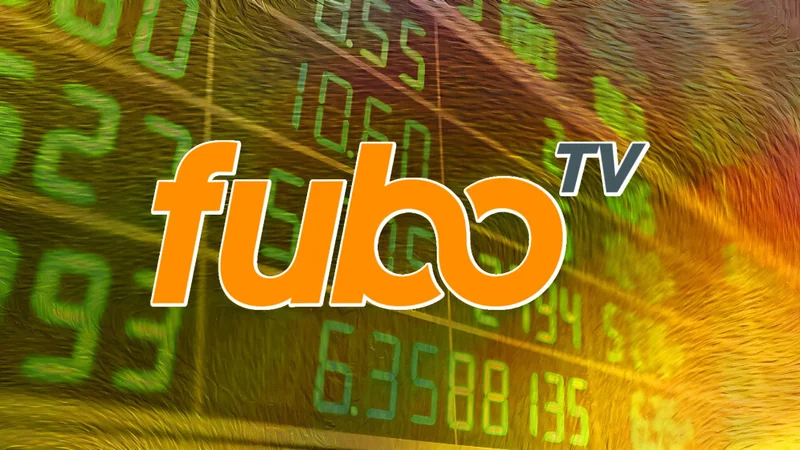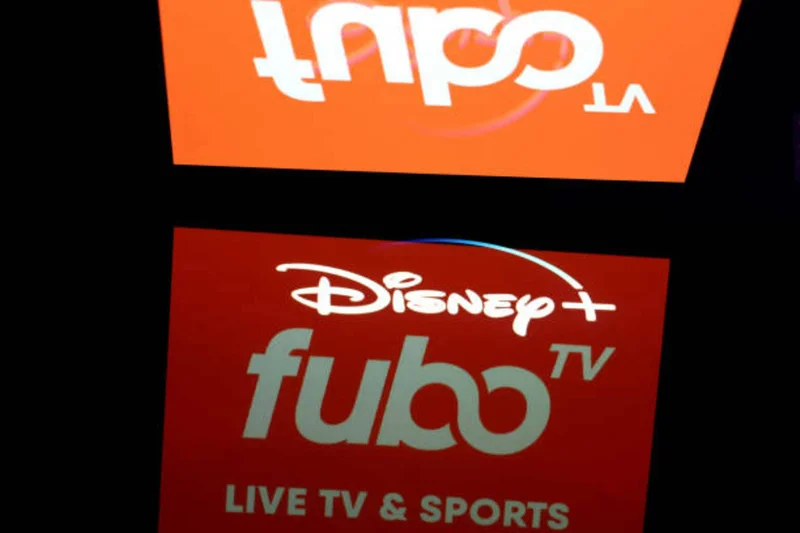Article Directory
The pre-market glow of a trading screen is a familiar sight, often a canvas of muted reds and greens signifying little more than institutional housekeeping. But on the morning of October 29, 2025, the ticker FUBO painted a different picture entirely—a vibrant, almost violent, shade of green. Shares were up more than 24%, a knee-jerk reaction to the news that Fubo had finally closed its merger with Disney's Hulu + Live TV.
For the retail traders who had championed the sports-first streaming service through years of gut-wrenching volatility, it was a moment of pure vindication. But for anyone who had been watching the numbers, this wasn't a surprise. It wasn't a bold new chapter. It was the predictable, and perhaps only, end to the story. This wasn't a merger of equals; it was the logical absorption of a scrappy, high-burn competitor by an industry leviathan. The market celebrated an exit, not a partnership.
The Writing on the Wall
To understand why this outcome was all but inevitable, you have to rewind the clock. Before the merger, Fubo’s stock chart looked less like a corporate growth story and more like an EKG readout during a cardiac event. The performance figures were dizzying and contradictory. A 141.8% gain over the past year screamed success, yet a five-year view showed a crushing 68.1% decline. This is the classic signature of a speculative asset, a company running on a narrative of disruption rather than a foundation of stable cash flow.
Bulls pointed to subscriber growth and a dedicated sports niche. Bears pointed to the colossal content costs and a business model that bled cash. And this is the part of the analysis that I find genuinely telling: when you strip away the sentiment and run the numbers, the story becomes much clearer. A Discounted Cash Flow (DCF) model, which attempts to value a company based on its future cash generation, put Fubo’s intrinsic value at around $4.13 per share before the deal. At the time, that represented a discount of only 7.4% to its trading price.
Let me be clear. For a high-volatility stock in a cutthroat industry, a single-digit discount isn't a signal of deep value. It’s a warning light on the dashboard. It suggests that even with optimistic projections for future cash flow (projected at $98 million by 2035), the company was priced for near-perfection. There was no margin of safety. What does a company with a powerful brand but a precarious financial foundation do when it's competing against giants like Disney, a company with annual revenues of about $91 billion—to be more exact, $91.4 billion in fiscal 2024? It finds a port in the storm.

A Merger of Necessity, Not of Equals
The official announcement, titled Fubo, Disney’s Hulu + Live TV Complete Business Combination, Creating Unique Consumer Focused vMVPD, was a masterclass in corporate framing, filled with talk of "combining two industry leading brands" and creating a "consumer-first streaming platform." Fubo Co-founder and CEO David Gandler spoke of delivering "scale, stability and strategic clarity." These are the words of a founder who has successfully navigated his company to a safe harbor, securing a future that was far from guaranteed. But read between the lines, and the mechanics of the deal reveal the true power dynamic.
The new structure gives Disney a controlling interest (approximately 70%), with Fubo shareholders retaining the remaining 30%. This isn't a joint venture; it's a takeover with the existing management kept in place to run their former company. Look at the newly formed board. It includes a slate of seasoned Disney executives: Jonathan Headley, Jim Lygopoulos, Debra OConnell, Cathleen Taff, and Justin Warbrooke. They aren't there for casual advice. They are there to represent the majority owner's interests.
This is less a merger and more like a skilled speedboat captain realizing he can’t cross the Atlantic alone and agreeing to lash his vessel to the side of an aircraft carrier. The captain might still be at the helm of the speedboat, but the carrier sets the course, the speed, and the ultimate destination. The deal even includes a $145 million term loan from Disney, a financial lifeline that doubles as a leash, further cementing Fubo's dependence on its new parent. The "synergies" mentioned—content cost savings and advertising optimization—are corporate-speak for integrating Fubo's operations into Disney's far larger and more efficient machine, particularly by folding Fubo's ad sales into Disney's own powerhouse organization.
Was this a bad outcome for Fubo? Absolutely not. It was a pragmatic and necessary one. The company, on its own, was facing a perpetual and costly war for sports rights and subscribers. By merging, it gains access to Disney’s capital, content library, and negotiating leverage. Gandler and his team get to continue building their vision, but now with the backing—and oversight—of the Magic Kingdom. For Disney, the logic is even simpler. It neutralizes a nimble competitor, absorbs nearly 6 million subscribers to become the sixth-largest Pay TV company in the U.S., and strengthens its hold on the future of live streaming. It was a strategic masterstroke, executed from a position of overwhelming strength.
Survival Isn't the Same as Victory
Let’s be perfectly clear about what happened here. This was a calculated surrender, brilliantly packaged as a strategic alliance. Fubo, for all its scrappy innovation and loyal user base, was on a path that had a very narrow window for success. The numbers didn't lie; the company was priced for a perfect future that was unlikely to materialize in an industry defined by consolidation and brute financial force. David Gandler secured the best possible outcome for his shareholders and his team—a significant premium and a continued role in the new entity. But the dream of an independent Fubo taking on the media giants is over. Disney didn't just buy a company; it bought out a competitor and absorbed its territory. For retail investors, the 24% pre-market pop was the payday. For the company itself, it was the end of the game.

